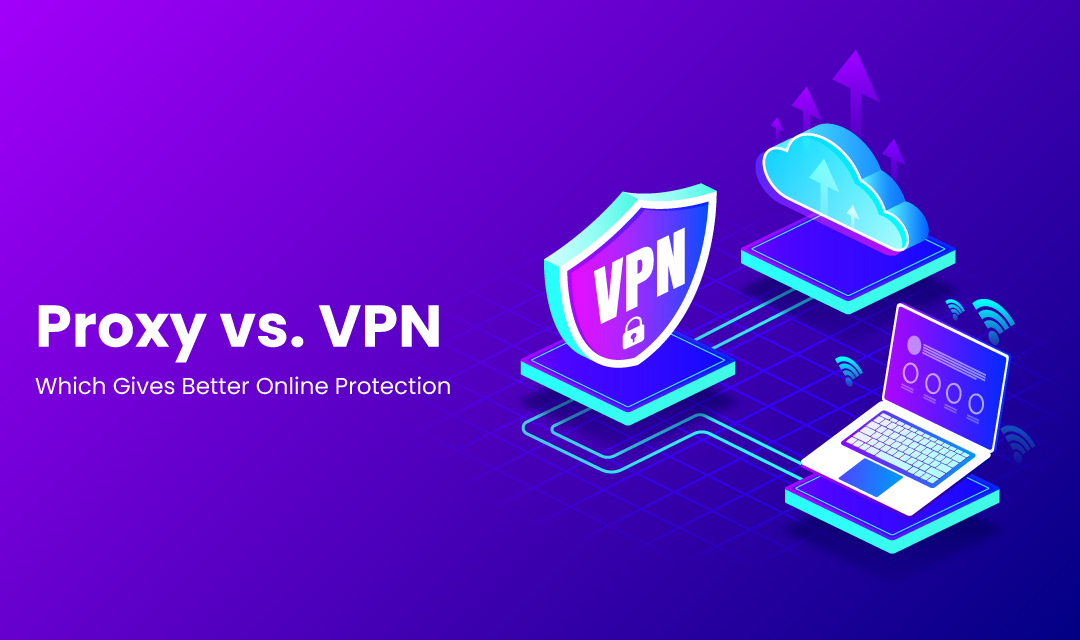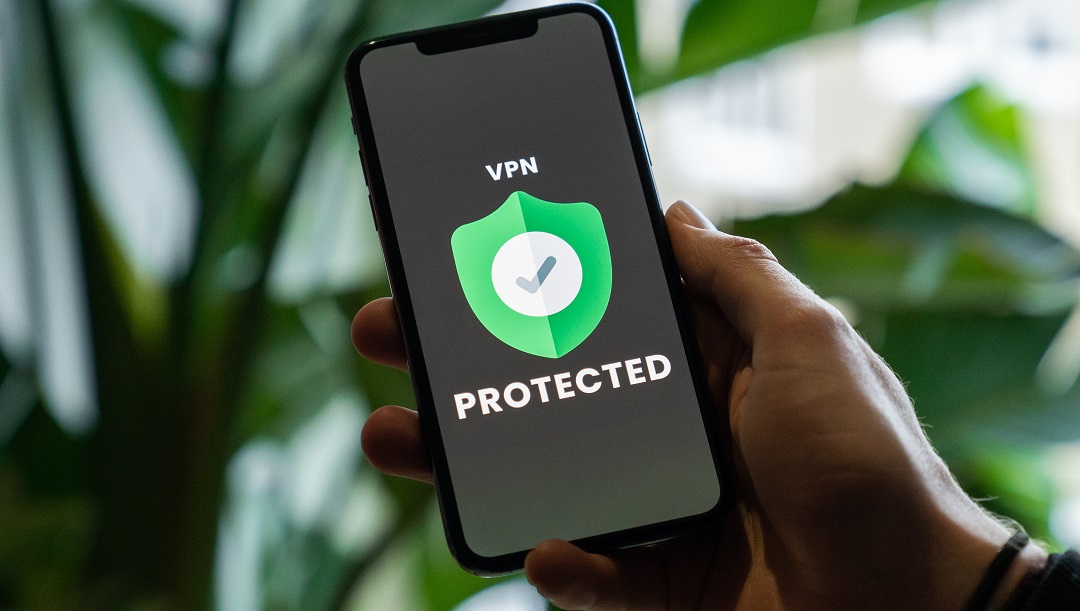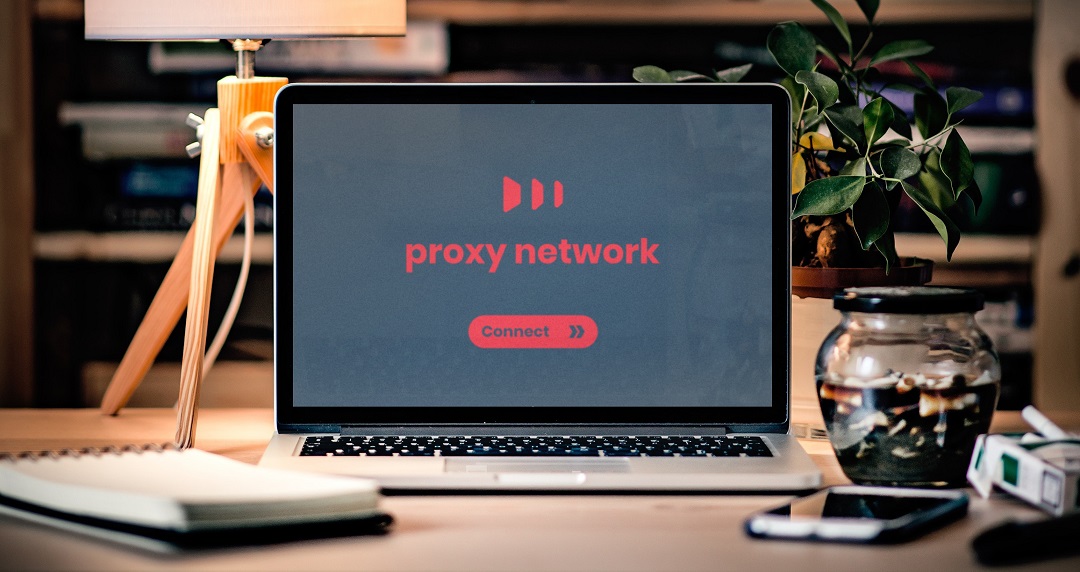
The world we live in is becoming more digitalized as time passes by. That's why ensuring online security and privacy has become a top priority for individuals and businesses alike. With the increasing number of cyber threats and the growing concerns about data breaches and surveillance, many people are turning to tools like VPNs and proxies to protect their online activities. While both proxies and VPNs offer a level of security, they differ in functionality and level of protection.
In this blog post, we'll help you understand VPNs and proxies and their key differences and determine which can give you better online protection. Let's begin!
What Is VPN?
A Virtual Private Network (VPN) is an advanced technology that allows you to establish a secure and encrypted connection between your gadget and a remote server operated by the VPN provider. As you connect to a VPN server, your internet traffic is routed through an encrypted tunnel that hides your IP address and encrypts your data. VPNs offer high security and privacy by encrypting all your internet traffic, regardless of your internet service provider or the applications and websites you use.

What Is a Proxy?
A proxy works as an intermediary between your device and the web. When you connect to a website through a proxy server, it masks your IP address and sends requests on your behalf, making it appear as if the proxy server is accessing the website. Proxies can be categorized into different types, such as HTTP proxies, SOCKS proxies, and transparent proxies. They are commonly used for bypassing content restrictions, accessing geo-restricted content, and improving network performance.

Proxy vs. VPN
Both proxies and VPNs provide a layer of security and protection to online users, even though they work differently. Below, we'll compare the two to get a better understanding of what tool is better suited to your security needs.
1. Security
Proxies: Proxies do not provide encryption by default, which means your data is transmitted in plain text. This makes it susceptible to interception and surveillance by malicious entities. Although some proxies offer encryption options, they may not provide the same level of security as VPN encryption. Additionally, proxies generally only secure web traffic, leaving other applications vulnerable to attacks.
VPNs: VPNs offer a higher level of security through robust encryption protocols such as OpenVPN or AES-256. When you connect to a VPN server, all your internet traffic is encrypted, protecting it from eavesdropping and unauthorized access. This includes not just web browsing but also other applications and services running on your device, providing a comprehensive layer of security for your online activities.
2. Privacy
Proxies: Proxies can hide your IP address, making it difficult for websites and services to identify your real location. However, proxies may still leak certain information, such as DNS requests, which can be used to track your online activities or identify your original IP address. This can compromise your privacy to some extent.
VPNs: VPNs still win when it comes to privacy. By masking your IP address and encrypting your internet traffic, VPNs make it significantly harder for entities to track or monitor your online activities. Your data remains private and secure, enhancing your overall online privacy.
3. Speed and Performance
Proxies: Proxies are known for their speed and performance benefits. Since they act as intermediaries between your device and the requested website, they can provide faster access to content. Proxies are particularly useful for caching data and improving network performance. However, this speed advantage comes at the cost of encryption and security.
VPNs: While VPNs may slightly impact your internet speed due to encryption and the distance to the VPN server, it's essential to have a fast internet provider. But, VPN technology has significantly improved over the years, and optimized servers can provide a balance between security and performance. Although there might be a slight reduction in speed, the added encryption and security benefits outweigh the minimal impact on performance.
4. Anonymity
Proxies: Proxies can offer some level of anonymity by masking your IP address and making it appear as if the proxy server is accessing websites. However, the effectiveness of anonymity can vary depending on the type and configuration of the proxy. Certain proxies may still reveal certain identifying information, such as browser headers or cookies, which can potentially be used to track you.
VPNs: VPNs provide stronger anonymity by masking your IP address behind the VPN server's IP. This makes it challenging for websites, ISPs, or other entities to identify your real location or track your online activities. VPNs create a more secure and anonymous browsing experience.
5. Versatility
Proxies: Proxies are often used for specific purposes. For example, HTTP proxies are commonly employed to secure connections, while SOCKS proxies are useful for location spoofing. Proxies can be easily configured on specific applications or devices, allowing for more targeted use cases. However, they generally do not provide comprehensive protection for all your internet traffic.
VPNs: VPNs also offer great versatility. They can protect your entire internet connection, safeguarding all your online activities regardless of the applications or websites you use. VPNs can be used for a wide range of purposes, including accessing geo-restricted content, securing online transactions, bypassing censorship, and ensuring privacy across multiple devices. They provide a more comprehensive solution for online protection.
The Verdict
While both proxies and VPNs offer a level of online protection, VPNs provide a more comprehensive and secure solution. Proxies may be suitable for specific purposes, such as bypassing content restrictions or improving network performance. However, they lack the encryption and security features that VPNs provide. Considering the need for comprehensive security, privacy, anonymity, and versatility, VPNs are the recommended choice for better online protection.
Share this post
Leave a comment
All comments are moderated. Spammy and bot submitted comments are deleted. Please submit the comments that are helpful to others, and we'll approve your comments. A comment that includes outbound link will only be approved if the content is relevant to the topic, and has some value to our readers.

Comments (0)
No comment